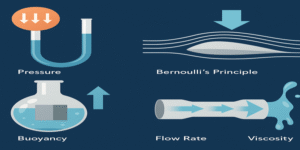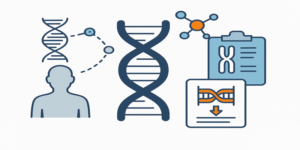Psychology is the scientific study of the mind and behaviour. It encompasses a broad and dynamic range of topics including cognitive processes, emotions, human development, personality, social interactions, and mental health. By utilising diverse research methods such as experiments, surveys, longitudinal studies, case studies, and clinical trials, psychologists strive to understand how individuals perceive the world, process information, and interact with others (Gross, 2015). This field has grown significantly over the last century and now includes multiple sub-disciplines, each contributing valuable insights into the complexity of human experience. The following is an overview of key modules of psychology and their applications.
1.0 Clinical Psychology
Clinical psychology is perhaps the most recognisable subfield. It focuses on the diagnosis, assessment, and treatment of mental health disorders, including anxiety, depression, schizophrenia, eating disorders, and personality disorders (APA, 2020). Clinical psychologists are trained to use evidence-based therapeutic techniques such as cognitive behavioural therapy (CBT), psychodynamic therapy, and humanistic approaches to help individuals manage their psychological distress.
For example, a clinical psychologist working with a client experiencing post-traumatic stress disorder (PTSD) might employ exposure therapy to help the client process traumatic memories and develop healthier coping strategies (American Psychological Association, 2020). Furthermore, clinical psychologists often collaborate with psychiatrists, social workers, and other healthcare professionals to create comprehensive care plans tailored to individual needs.
As mental health awareness grows globally, the demand for clinical psychologists in hospitals, private practice, schools, and correctional facilities continues to rise. According to Comer and Gould (2019), clinical psychology is increasingly focused not only on treating mental illness but also on promoting mental well-being and prevention strategies.
2.0 Developmental Psychology
Developmental psychology examines the psychological changes that occur throughout a person’s lifespan. This includes the study of physical, emotional, social, and cognitive development from infancy through old age (McLeod, 2020). Developmental psychologists investigate how individuals grow and adapt at different life stages, focusing on both typical and atypical development.
A developmental psychologist might research how early childhood attachment affects emotional regulation in later life or how teenagers’ relationships with peers impact identity formation. Key theorists in this area include Jean Piaget, known for his stages of cognitive development, and Erik Erikson, who proposed a psychosocial theory of development spanning across the human lifespan (Bee & Boyd, 2013).
Recent research in developmental psychology also highlights the influence of genetics, parenting styles, and socio-cultural factors on development, reinforcing the importance of a holistic approach to studying human growth (Berk, 2018).
3.0 Cognitive Psychology
Cognitive psychology is concerned with understanding the internal mental processes that underpin human behaviour. These include perception, memory, language, attention, problem-solving, and decision-making (Cherry, 2021). This area of psychology often uses experimental methods and computer modelling to explore how people encode, store, retrieve, and use information.
For instance, a cognitive psychologist might design a study to understand the effects of multitasking on short-term memory retention. This subfield has practical applications in areas such as education, where understanding how learners process information can enhance teaching strategies, or in the legal system, where research into memory reliability is crucial for evaluating eyewitness testimony (Eysenck & Keane, 2015).
Furthermore, cognitive psychology plays a key role in the development of artificial intelligence and human-computer interaction, making it an ever-evolving and technologically integrated field.
4.0 Social Psychology
Social psychology explores how individuals’ thoughts, feelings, and behaviours are influenced by the presence of others. It examines themes such as conformity, persuasion, prejudice, group dynamics, and interpersonal relationships (McLeod, 2007). This field is especially important in understanding societal issues such as racism, aggression, and cooperation.
A classic example is the research by Milgram (1963) on obedience to authority, which demonstrated the extent to which people would follow orders even when they conflicted with personal conscience. More recent work in social psychology looks at how social media influences self-perception, political attitudes, and social connectivity.
Social psychologists often apply their findings in fields such as marketing, politics, health promotion, and conflict resolution. For example, understanding group behaviour and norms can be instrumental in designing effective public health campaigns or reducing discriminatory practices in the workplace (Aronson et al., 2019).
5.0 Industrial-Organisational Psychology
Industrial-Organisational (I-O) psychology applies psychological theories and principles to workplace settings. This includes research on employee motivation, performance, leadership, job satisfaction, and organisational development (Society for Industrial and Organisational Psychology, n.d.). The goal is to enhance productivity and employee well-being while aligning individual and organisational goals.
An I-O psychologist may conduct a job analysis to identify the skills required for a position, develop training programmes, or design fair recruitment practices. They may also advise companies on improving team collaboration and workplace diversity (Muchinsky, 2012).
As businesses increasingly recognise the importance of mental health and positive organisational culture, I-O psychologists play a pivotal role in shaping policies that improve work-life balance, reduce burnout, and foster employee engagement.
6.0 Other Emerging Modules
While the aforementioned disciplines represent core areas of psychology, the field continues to evolve. For instance, health psychology examines the psychological factors influencing physical health and illness. It explores how behaviours such as smoking, exercise, and diet impact well-being, and how psychological interventions can promote healthier lifestyles (Taylor, 2018).
Similarly, forensic psychology bridges the gap between psychology and the criminal justice system. It involves assessing criminals’ mental states, working with victims, and advising legal professionals. Educational psychology, meanwhile, focuses on learning environments and how cognitive and emotional factors affect students’ academic performance (Woolfolk, 2016).
Psychology is a multifaceted discipline that spans a wide array of subfields, each offering unique insights into human behaviour. Whether through therapeutic interventions in clinical settings, analysing developmental stages, exploring cognitive processes, or understanding social influences, psychologists contribute to our knowledge of the human mind in significant ways. As society becomes more complex and mental health awareness grows, the relevance and application of psychological principles will only continue to expand. Through rigorous research, practical application, and interdisciplinary collaboration, psychology plays an essential role in improving individual lives and societal functioning.
References
American Psychological Association (APA). (2020). Clinical psychology. Available at: https://www.apa.org/ed/graduate/specialize/clinical [Accessed 5 July 2025].
Aronson, E., Wilson, T.D., Akert, R.M., Sommers, S.R. (2019). Social Psychology. 10th ed. Harlow: Pearson.
Bee, H.L. and Boyd, D. (2013). Lifespan Development. 6th ed. Boston: Pearson.
Berk, L.E. (2018). Development Through the Lifespan. 7th ed. Boston: Pearson.
Cherry, K. (2021). What is cognitive psychology? Verywell Mind. Available at: https://www.verywellmind.com/what-is-cognitive-psychology-2796018 [Accessed 5 July 2025].
Comer, R.J. and Gould, E. (2019). Psychology Around Us. 3rd ed. Hoboken: Wiley.
Eysenck, M.W. and Keane, M.T. (2015). Cognitive Psychology: A Student’s Handbook. 7th ed. Hove: Psychology Press.
Gross, R. (2015). Psychology: The Science of Mind and Behaviour. 7th ed. London: Hodder Education.
McLeod, S.A. (2007). Social Psychology. Simply Psychology. Available at: https://www.simplypsychology.org/social-psychology.html [Accessed 5 July 2025].
McLeod, S.A. (2020). Developmental Psychology. Simply Psychology. Available at: https://www.simplypsychology.org/developmental-psychology.html [Accessed 5 July 2025].
Milgram, S. (1963). Behavioral study of obedience. Journal of Abnormal and Social Psychology, 67(4), pp. 371–378.
Muchinsky, P.M. (2012). Psychology Applied to Work: An Introduction to Industrial and Organizational Psychology. 10th ed. Summerfield: Hypergraphic Press.
Society for Industrial and Organizational Psychology. (n.d.). What is I-O? Available at: https://www.siop.org/What-We-Do/About-I-O-Psychology/What-is-IO [Accessed 5 July 2025].
Taylor, S.E. (2018). Health Psychology. 10th ed. New York: McGraw-Hill.
Woolfolk, A. (2016). Educational Psychology. 13th ed. Boston: Pearson.









